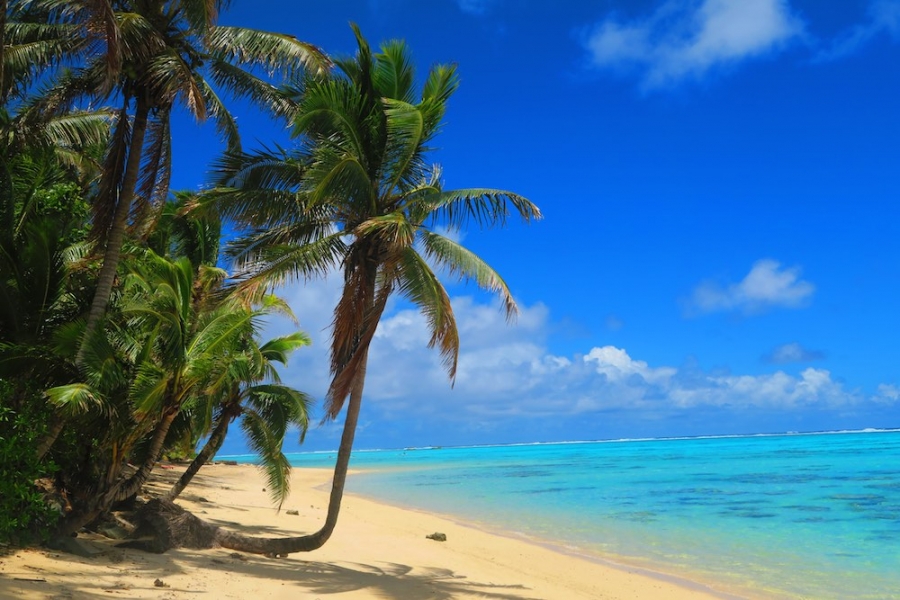Tuesday 12 May 2020 | Written by Legacy Author | Published in Small World

Islands weigh up risks of reopening tourism.
PACIFIC – The risk of reopening for tourism are starker in the South Pacific islands than almost anywhere else on Earth, AFP has reported.
This week, countries all over the world are weighing up when to ease restrictions that will save jobs – at the risk of the virus running amok.
Most of the Pacific’s postcard-perfect archipelagoes have been spared outbreaks that could have instantly overwhelmed their fragile health systems.
Around a dozen Pacific island nations remain virus-free, most of them remote dots in the ocean that sealed their borders quickly when they saw the carnage Covid-19 was causing elsewhere in the world.
One notable exception is Fiji, where 18 cases have been reported although the authorities hope to be able to declare the islands virus-free later this month.
Despite the low health impact from the coronavirus in the Pacific, the economic impact of the pandemic has been devastating.
Communities across the region rely heavily on tourists – in some places as much as 50 per cent of GDP – that flock to the Pacific from parts of the world where Covid-19 is now actively spreading.
Since the crisis began, flights have stopped, hotels have been abandoned, and revenue has dried up.
“When Australia closed its borders to international travel, our resort went to zero income in three days,” Elizabeth Pechan, co-owner of Vanuatu’s The Havannah resort, wrote in a recent blog post.
In Vanuatu alone, 70 per cent of tourism jobs have reportedly disappeared.
And already impoverished nations have no US Treasury or European Central Bank to race to the financial rescue.
Still, an idea to include the islands in a quarantine-free travel “bubble” with Australia and New Zealand – where infection rates are low – is getting only a cautious welcome.
“There’s a huge risk if Covid finds its way into Pacific island nations that are currently untouched,” said New Zealand Prime Minister Jacinda Ardern after recent talks with her Australian counterpart Scott Morrison.
“We believe that little pockets like ourselves, currently free of the virus and working with other like-minded countries in the region, exercising caution, should be able to reopen,” said Cook Islands Tourism chief executive Halatoa Fua.
But he stressed the bubble would need to come with stringent safeguards.
Many of the islands already suffer from high levels of diabetes and heart disease that could make any coronavirus outbreak especially dangerous.
Chairman of the Palau Visitors Authority, Ngirai Tmetuchi, said the bubble idea was worth exploring “but we’d have to read the fine print and evaluate the risks”.
The island’s Tourism Ministe Umiich Sengebau said in the absence of direct air links with Australia and New Zealand, it made more sense for his country to pursue a bubble arrangement with Taiwan. Palau is one of the few nations to have diplomatic relations with Taipei.
“This is an ingenious idea that we must consider for a country like Taiwan, which has done a very good job in handling of Covid-19 pandemic,” he said.
“This is mutually beneficial given the tourists from Taiwan want to visit Palau for leisure and Palauans go to Taiwan for medical treatments and some leisure time as well.”
Elsewhere, the immediacy of the pandemic threat has put such plans firmly on the backburner, AFP reported.
“Right now, the Solomons Islands government’s priority is to finalise preparedness and response requirements such as in-country testing and facilitate repatriation of stranded citizens within the region,” a spokesman for Prime Minister Manasseh Sogavare said.
With total eradication in Australia, New Zealand or Taiwan unlikely, the ability to trace, treat and isolate any outbreak will likely be key.
In a signal of the scale of the challenge, Marshall Islands Health Secretary Jack Niedenthal said it was too early even to consider the idea of a bubble.
“Even just responding with a ‘maybe’ could cause a lot of unnecessary anxiety with our people,” he said.